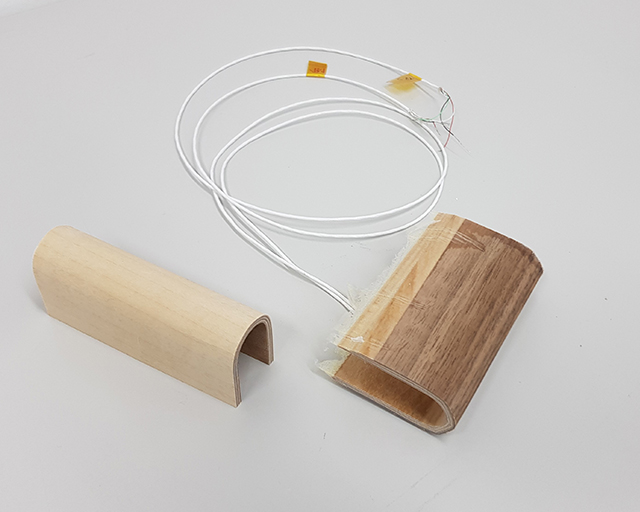
Smart, modular and sustainable interior for the transportation of the future

Electrification and autonomization will have an enormous impact on the automobiles of future generations. This will increase the focus on the vehicle interior in particular. New operator concepts as well as a level of freedom during travel time gained through increasing autonomy mean that new approaches to solutions and options are required for vehicle interiors. Furthermore, increased requirements for sustainable mobility and an associated CO2 reduction or neutrality will have a massive influence on vehicle design.

Bio-based, functionalized interior components
As a participant in a research team comprising five Fraunhofer institutes, the Fraunhofer IST is working on the modular design of the interior of future passenger cars and light commercial vehicles. This project is called ”FutureFlexPro”. With bundled competencies in renewable raw materials and their processing and component functionalization, solutions are being developed for rapidly interchangeable components which allow the interior to be adapted to its respective purpose, have a long service life thanks to robust surfaces, and also ensure repair and maintenance as the vehicles continue to be used in order to reduce their downtimes.
Functional mix of materials for a future interior
As part of the sub-project ”Future Interior”, an interior door panel is being equipped with application-specific functions as a technology demonstrator at the Fraunhofer IST. The semi-finished products and components, on the basis of natural fibers or wood veneers provided by the project partners Fraunhofer IAO, IWU and WKI, are equipped with various functions such as antibacterial and easy-to-clean surfaces, integrated temperature sensors or touch functions. In addition, the different material combinations, including in particular the functional materials, are examined in detail, for example for their adhesive strengths and interactions of the materials.
Based on the project results, solution approaches for a broad range of applications can be presented at the material, process and component levels. Examples include:
- Component-integrated sensor technology
- Use of bio-based source materials for the coating
- of surfaces
- Large-surface coating of components to integrate functions such as electrical conductivity or antimicrobial properties
- Unit numbers on an industrial scale
- Inline-capable, scalable and resource-efficient
- coating processes
- Functionalization
- Development of new operating concepts
Outlook
The results of the project will be used to expand the Fraunhofer IST's interdisciplinary cooperation with the Fraunhofer Institutes for Machine Tools and Forming Technology IWU, for Manufacturing Technology and Advanced Materials IFAM, for Wood Research Wilhelm-Klauditz-Institut WKI and for Industrial Engineering IAO. The solution approaches will be transferred to the development of further bio-based interior components, with differing modes of transport being taken into consideration. More detailed investigations will thereby be carried out into the durable integration of function and the addition of further functions and operating concepts. The aim is to work with OEMs (original equipment manufacturers) and automotive suppliers to implement the technology in products or vehicles and also to adapt the results to applications in other sectors, such as medical technology or the construction industry.
This article is part of the Annual Report 2021.


